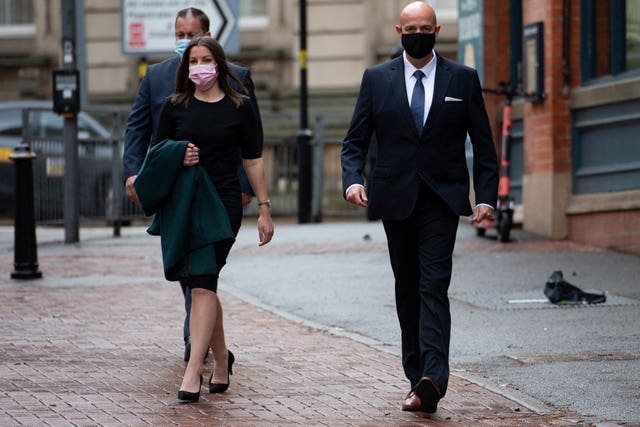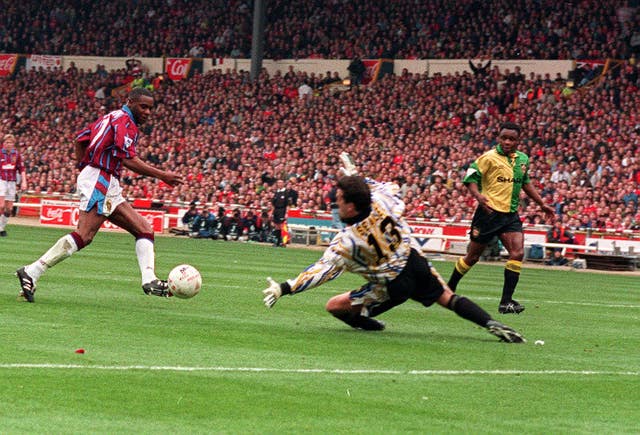Pathologist tells jury of ‘patterned bruising’ found on ex-Premier League star
Jurors are hearing a fourth week of evidence about the death of former Aston Villa forward Dalian Atkinson.

A murder trial jury has been shown photographs of footwear marks found on the forehead of ex-footballer Dalian Atkinson.
Images of two separate areas of injury accepted to have been caused by Pc Benjamin Monk were seen by jurors at Birmingham Crown Court as a pathologist listed marks he had recorded during a post-mortem examination.
The Crown alleges Pc Monk, 42, and 31-year-old Pc Mary Ellen Bettley-Smith unlawfully attacked Mr Atkinson near his father’s home in Telford, Shropshire, on August 15, 2016.
Monk, who fired a Taser at Mr Atkinson three times, denies murder and manslaughter, while his West Mercia force colleague Bettley-Smith denies assault.

As jurors began hearing a fourth week of evidence on Monday, forensic pathologist Dr Olaf Bierdrzycki said he had requested specialist examination under polarised light of three apparently patterned injuries, including one to each side of Mr Atkinson’s forehead.
Dr Bierdrzycki also listed 15 areas of “under-the-skin” bruising found on the body of the former Aston Villa, Sheffield Wednesday and Ipswich Town striker, including marks on his neck, shoulder, shoulder blade, flank, buttock, thigh, bicep, elbow and shin.
Before taking jurors through the details of the injuries, the pathologist said he had also identified three potential Taser marks on the chest of the 48-year-old.
Addressing marks to the side of the right forehead, Dr Bierdrzycki said they comprised “linear marks of intradermal red bruising that essentially formed the outlines of three adjacent triangles”.
The pathologist said of the other forehead injury, also forming a “triangle-shaped” area of bruising: “Just like on the right forehead, on the left forehead there was a subtle suggestion of patterned mottled intradermal bruising.
“Cross polarised light revealed an obvious patterned injury.”
Two circular marks had also been shown by examination under polarised light, the witness added.

Jurors were told last week that bloodstaining found on the boot of Pc Monk was consistent with being caused by “forceful” contact.
Earlier in the trial, defence QC Patrick Gibbs said it was not in dispute that Monk must have kicked Mr Atkinson twice in the head, as it was “the only explanation” for marks found on his forehead.
Dr Bierdrzycki told the court he had recorded a narrative verdict for the cause of death as “cardiorespiratory arrest with very close temporal proximity to the successful deployment of a Taser device, followed by a brief period of restraint and blunt force trauma in a person with hypertrophic cardiomyopathy and end stage hypertensive nephropathy”.
The pathologist said it was “reasonable to say” the two kicks to the head were with moderate force and could have knocked Mr Atkinson unconscious.
Although his heart was “extremely abnormal” and meant he could have died at any time, Dr Bierdrzycki said the former footballer “died in very close temporal relationship to the circumstances described”.
The witness told the jury it was possible that when Mr Atkinson was tasered, he fell to the ground and struck his head, with the impact making him unconscious.
Dr Bierdrzycki added: “If the kicks themselves made him unconscious, they potentially put him in a very dangerous situation.
“Something caused him to be unconscious and that’s the crux of the case.”
The trial continues.





